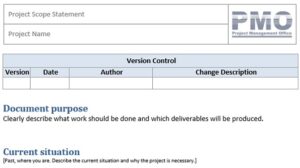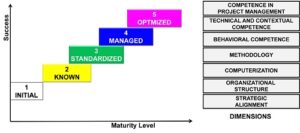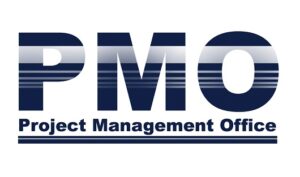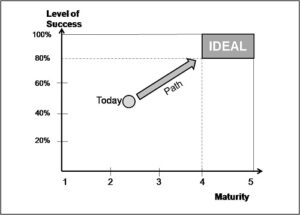Building a Career in Project Management: Essential Skills and Certifications explores the key competencies required to excel in project management, such as leadership, communication, and problem-solving. The article highlights industry-recognized certifications like PMP, PRINCE2, and Scrum Master, explaining how they enhance career prospects. It also offers insights into aligning personal skills with market demands to build a successful and sustainable career in the field.
Starting Your Project Management Journey
Ever wondered how complex projects come together seamlessly? Starting a career in project management may just be your calling. Think back to those moments when you organized a successful event or coordinated a group project—didn’t it feel rewarding to see your plans come to life?
Project management is not just about overseeing tasks; it’s about transforming ideas into reality. As businesses expand, the demand for skilled project managers continues to grow across industries like technology, healthcare, and construction. They are the linchpins of successful outcomes, ensuring projects are delivered on time and within budget.
Entering this field offers the opportunity to make a significant impact, regardless of the industry. It’s a career filled with challenges, yet the satisfaction of leading a team to success is unparalleled. Let’s explore how you can embark on this exciting journey.
Key Skills for Success
Leadership and Team Management
In project management, leadership is about more than just directing tasks; it’s about inspiring your team to achieve a common goal. Consider a project manager at a tech firm who motivates a diverse team to innovate and meet tight deadlines. Strong leadership fosters collaboration and drives the project toward success.
Effective Communication
Clear and concise communication is the backbone of any successful project. Imagine managing a construction project where you seamlessly coordinate with architects, engineers, and clients, ensuring everyone is on the same page. Effective communication helps avoid misunderstandings and keeps the project on track.
Problem-Solving and Critical Thinking
Every project faces challenges, and a skilled project manager uses critical thinking to navigate obstacles. For instance, a marketing manager who identifies a drop in campaign engagement and devises a strategic pivot demonstrates keen problem-solving abilities. This skill ensures that projects adapt to changes and maintain momentum.
These key skills not only enhance your capability as a project manager but also align with the industry standards needed for certifications, setting you up for a successful career.
Understanding Industry Certifications
In the realm of project management, industry certifications play a pivotal role in validating your skills and enhancing your career prospects. These certifications serve as a testament to your expertise and commitment to the field, making you a more attractive candidate to potential employers. Whether you’re just starting out or looking to advance, choosing the right certification can significantly impact your career trajectory.
Here’s a quick comparison of some popular project management certifications:
| Certification | Focus Area | Career Impact |
|---|---|---|
| PMP (Project Management Professional) | Comprehensive project management | Widely recognized; boosts leadership roles |
| PRINCE2 (Projects IN Controlled Environments) | Process-driven approach | Highly valued in Europe and globally |
| Scrum Master | Agile project management | Essential for agile environments |
By investing in these certifications, you not only enhance your knowledge but also position yourself for leadership opportunities. They demonstrate your ability to manage complex projects and adapt to various methodologies, making you a valuable asset in any industry.
PMP Certification
The Project Management Professional (PMP) certification is a globally recognized credential that signifies your proficiency in managing and leading projects. Offered by the Project Management Institute (PMI), it covers a wide range of project management techniques and methodologies, ensuring you are well-equipped to handle projects across various industries.
To earn the PMP certification, you need to meet specific requirements, including:
- A four-year degree along with 36 months of project management experience, or a high school diploma with 60 months of experience.
- 35 hours of project management education or training.
- Passing the PMP exam, which tests your knowledge and application of project management principles.
One of the key benefits of obtaining a PMP certification is the potential for higher earnings. According to PMI’s Earning Power Salary Survey, PMP certification holders earn up to 25% more than their non-certified counterparts. Additionally, the certification enhances your credibility, opening doors to leadership positions and expanding your career opportunities.
With PMP certification, you gain a competitive edge, positioning yourself as a leader capable of navigating complex projects and delivering successful outcomes.
PRINCE2 Certification
PRINCE2 (Projects IN Controlled Environments) is a process-based approach to project management, providing a structured framework that ensures projects are delivered on time, within budget, and to the desired quality. Widely used across the globe, PRINCE2 is valued for its flexibility and scalability, making it suitable for projects of all sizes and complexities.
Benefits of PRINCE2
PRINCE2 certification offers numerous benefits that can significantly enhance your project management career:
- Standardization: It provides a common language and methodology that facilitates communication among stakeholders.
- Versatility: PRINCE2 can be tailored to the needs of any project, ensuring relevance in diverse industry settings.
- Risk Management: The framework emphasizes proactive risk management, which helps in minimizing potential project setbacks.
“PRINCE2 has transformed the way I approach projects, offering a clear path and methodology to follow,” says Jane Doe, a certified PRINCE2 practitioner. “Its global recognition has opened up international opportunities I never thought possible.”
Overall, PRINCE2’s global recognition and adaptability make it a valuable asset for project managers aiming to excel in their careers, aligning seamlessly with varying organizational needs and market demands.
Scrum Master Certification
In the realm of agile project management, the Scrum Master plays a pivotal role. Agile methodology is a dynamic approach that focuses on delivering small, workable segments of a project in iterative cycles, known as sprints. This methodology prioritizes flexibility, collaboration, and customer satisfaction.
The Scrum Master acts as a servant leader, facilitating the Scrum process and ensuring that the team adheres to agile principles. They remove obstacles, foster an environment of continuous improvement, and help the team remain focused on their goals.
The diagram above illustrates the Scrum process, highlighting the flow from planning through sprint execution to review and retrospective. As a certified Scrum Master, you’ll be equipped to lead agile teams effectively, ensuring that projects are delivered efficiently and meet client needs. The role is integral to agile project management, bridging the gap between the development team and stakeholders to drive successful project outcomes.
Aligning Skills with Market Demands
In the fast-evolving world of project management, staying attuned to current market trends is crucial for career growth. Here are some trends shaping the industry:
- Increased focus on digital transformation: Organizations are prioritizing digital tools and processes to enhance efficiency.
- Emphasis on remote work and collaboration: The rise of remote teams necessitates strong virtual leadership skills.
- Sustainability and ethical practices: Projects are increasingly evaluated based on their environmental and social impact.
Adapting your personal skills to align with these demands can set you apart in the job market. Take, for instance, Sarah, a project manager who successfully transitioned her skills to thrive in a tech-driven environment. By embracing digital platforms and honing her remote collaboration capabilities, she led her team to deliver innovative solutions that exceeded client expectations. Her willingness to evolve with industry trends not only boosted her career but also positioned her as a leader in her field.
By understanding these trends and adapting accordingly, you can ensure your skillset remains relevant and valuable, paving the way for a sustainable career in project management.
FAQs on Building a Career
Diving into project management can raise a few questions. Let’s tackle some of the most common ones to help you navigate your career path with confidence!
Q: What industries can I work in as a project manager?
A: Project management is a versatile field. You can find opportunities in industries like IT, construction, healthcare, and finance. Each sector offers unique challenges and growth prospects, so think about which aligns best with your interests.
Q: Do I need a certification to start my career?
A: While not mandatory, certifications like PMP or Scrum Master can give you a competitive edge. They validate your skills and knowledge, making you more attractive to employers.
Q: How do I develop leadership skills?
A: Leadership is a key skill in project management. Start by seeking opportunities to lead small teams or projects. Consider mentorship or workshops to enhance your abilities. Remember, practice makes perfect!
Building a career in project management is a journey filled with learning and growth. If you have more questions, don’t hesitate to reach out to professionals in the field or join relevant forums and communities.
Conclusion and Next Steps
As you’ve explored, building a career in project management requires a blend of essential skills such as leadership, effective communication, and problem-solving. Industry-recognized certifications like PMP, PRINCE2, and Scrum Master can significantly boost your career prospects, offering validation of your expertise and dedication.
Pursuing a career in project management opens doors to numerous industries, providing dynamic and rewarding opportunities. Embrace this journey with confidence, knowing that your skills contribute to the successful realization of projects that shape industries and communities.
To continue your learning, consider exploring resources such as project management books, online courses, and professional networks. These can provide deeper insights and keep you updated on industry trends.
Remember, the world of project management is vast and full of potential. Your next steps are instrumental in crafting a successful and fulfilling career. Go forth and make your mark!





